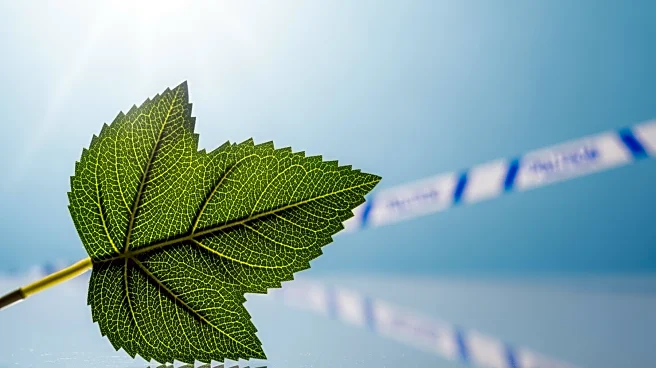What's Happening?
Researchers at the University of Cambridge have developed a solar-powered device that mimics photosynthesis to convert CO2, sunlight, and water into valuable chemical fuels. This 'semi-artificial leaf' operates without an external power supply and uses
non-toxic materials, making it safer and more durable than previous models. The device successfully converts carbon dioxide into formate, a clean fuel, which can be used in chemical reactions to produce pharmaceutical compounds with high purity. This breakthrough could help replace fossil fuels in chemical manufacturing and promote green chemistry.
Why It's Important?
The development of the semi-artificial leaf represents a significant advancement in sustainable chemistry, offering a cleaner approach to chemical production that reduces reliance on fossil fuels. The chemical industry is a major contributor to global carbon emissions, and innovations like this could help 'de-fossilize' the sector, making it more environmentally friendly. By using organic semiconductors and bacterial enzymes, the device achieves high efficiency and durability, paving the way for future applications in producing green fuels and chemicals. This technology has the potential to transform the chemical industry, contributing to a circular, sustainable economy.















